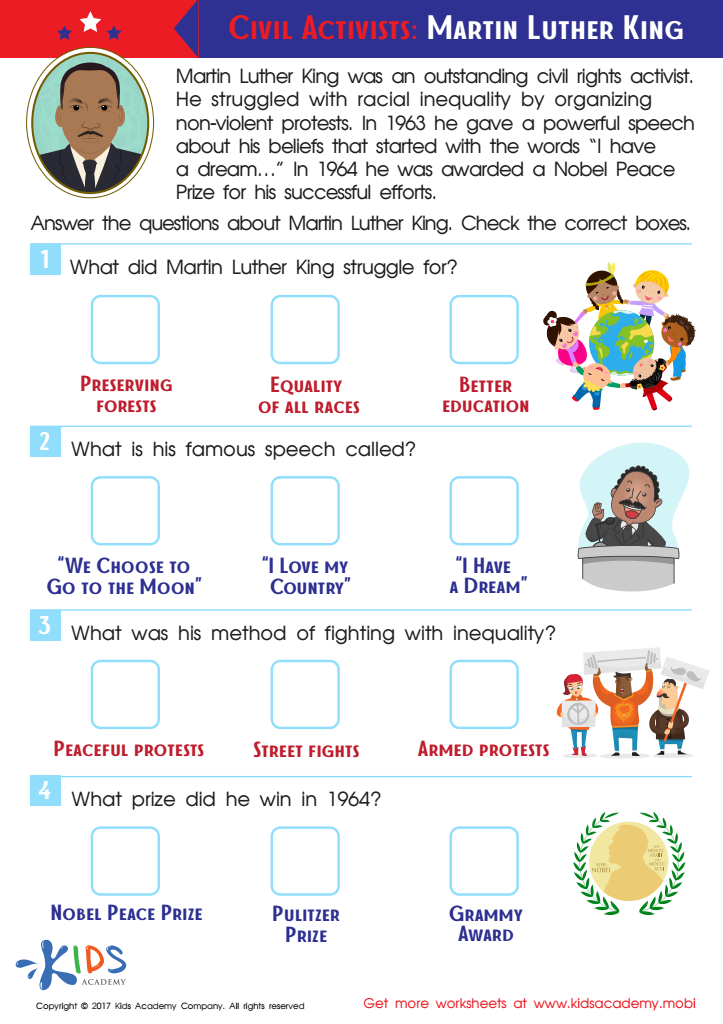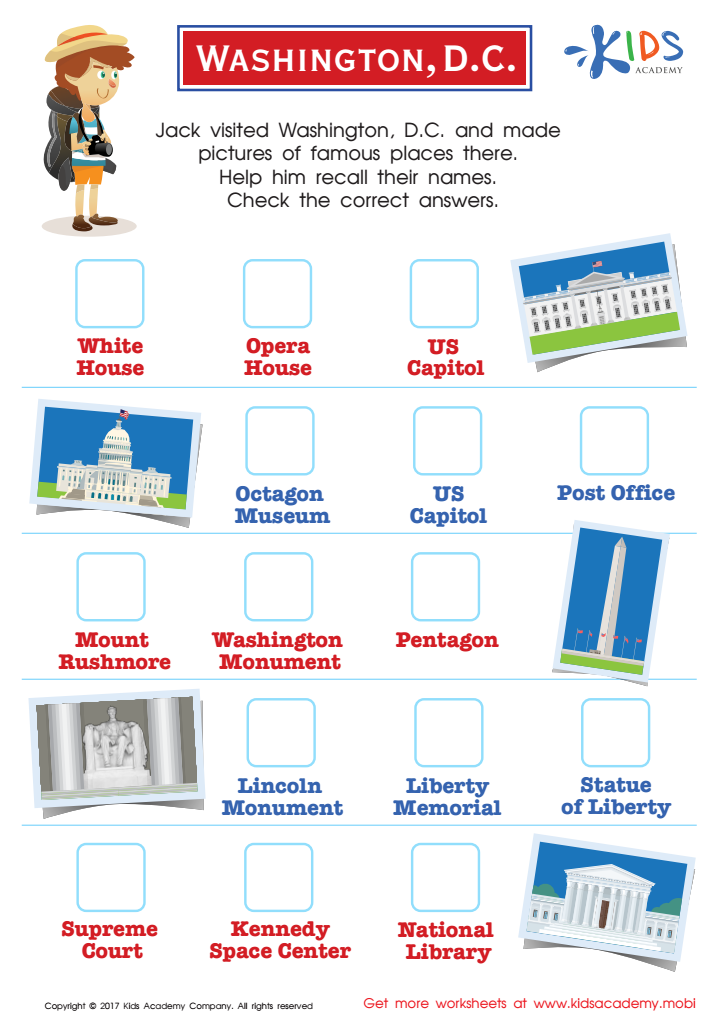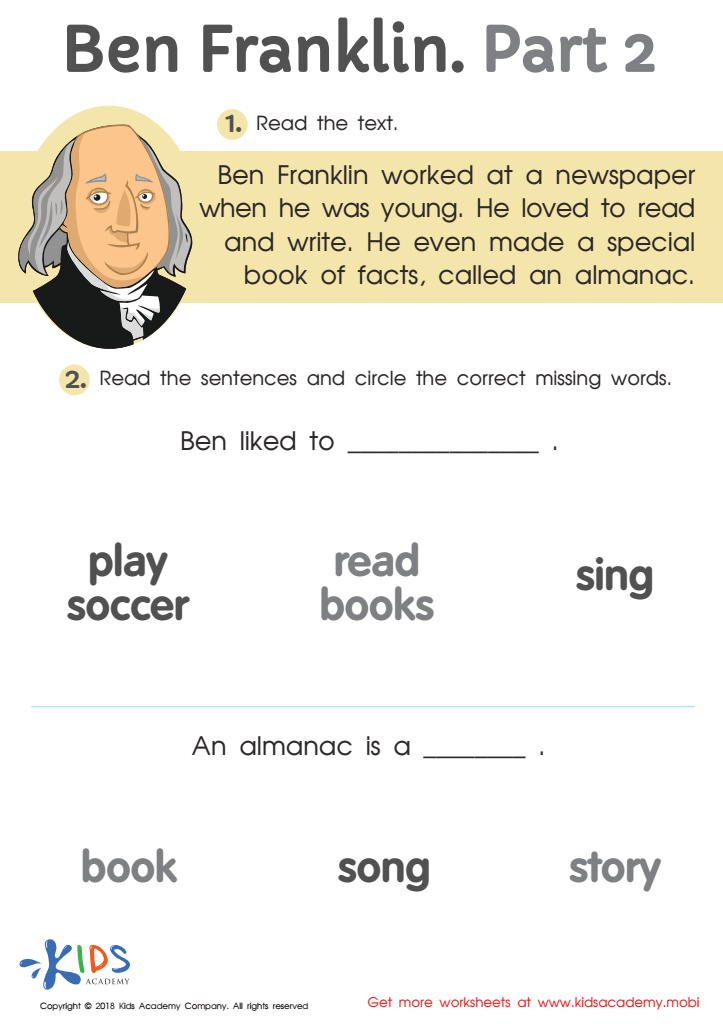Historical Knowledge Normal Governance and Civics Worksheets for Ages 8-9
3 filtered results
-
From - To
Introduce young learners to the fundamental concepts of governance and civics with our "Historical Knowledge Normal Governance and Civics Worksheets" designed for ages 8-9. These engaging, age-appropriate worksheets provide a comprehensive understanding of historical events, significant figures, government structures, and civic responsibilities. With easy-to-follow activities and thought-provoking questions, students can develop critical thinking skills and a sense of responsibility as citizens. Perfect for classroom use or homeschooling, our resources align with educational standards to support teachers and parents in fostering an early appreciation for history and governance. Explore now and make learning history a fascinating journey!


Martin Luther King Worksheet


Washington D.C. Printable Worksheet


Ben Franklin Part 2 Worksheet
Parents and teachers play a critical role in shaping a child's understanding of historical knowledge, governance, and civics, all of which are fundamental for ages 8-9. At this impressionable age, children begin to grasp the concepts of community, authority, and their own roles within society. Teaching them about history provides context to the world around them, helps them recognize significant events and figures, and instills a sense of belonging and identity. Understanding governance and civics, on the other hand, equips children with knowledge about how societies are organized and run. This foundation fosters active and informed citizenship.
Historical knowledge builds a child's ability to critically analyze past events and societies, understanding causes and effects, which promotes better decision-making skills in their personal lives. Similarly, basic civics education ensures children comprehend their rights and responsibilities, enabling them to become empathetic and active members of their communities.
Moreover, early exposure to these subjects cultivates curiosity and respect for cultures different from their own, fostering a more inclusive and tolerant worldview. In summary, prioritizing historical, governance, and civics education for young children leads to the development of knowledgeable, responsible, and socially conscious individuals, essential for sustaining vibrant and humane societies.

 Assign to My Students
Assign to My Students










